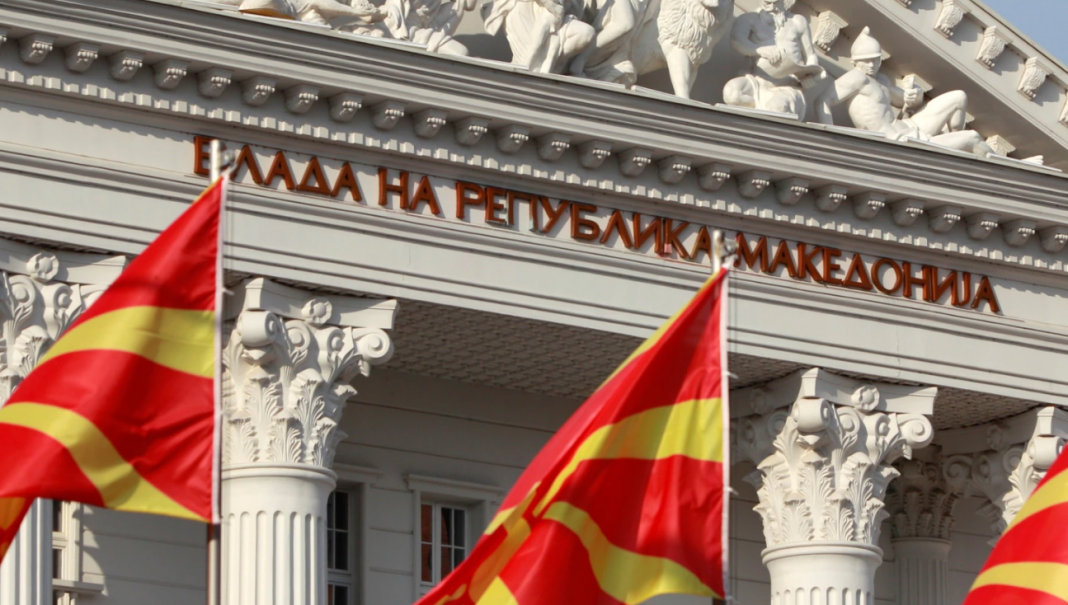The proposal for constitutional changes, prepared by the group of experts from the Ministry of Justice, is currently in the Government, which needs to give its green light and send it for approval to the Parliament of North Macedonia.
According to the Government, the decision will be made by Friday the latest. Then parliamentary procedures will begin regarding the need to amend the Constitution.
The changes relate to the preamble, specifically the inclusion of the Bulgarian minority, which is a condition for the start of European Union accession negotiations for North Macedonia, based on the agreement with Sofia to resolve disputes over language, identity, and historical differences.
However, in addition to Bulgarians, the preamble will also include Jews, Slovenes, Croats, and Egyptians.
The constitutional amendment is causing significant divisions between the two North Macedonian political blocs, the Social Democratic Union of Macedonia (SDSM) led by Prime Minister Dimitar Kovačevski, and the opposition VMRO-DPMNE led by Hristijan Mickoski.
Based on a statement by the leader of the North Macedonian opposition Hristijan Mickoski, there will be no agreement, and VMRO-DPMNE will maintain its position against the constitutional changes.
“I will participate in the leaders’ meeting, and on behalf of the overwhelming majority of the population seeking to protect our identity, I will say that we will not accept constitutional changes or dictates from the Bulgarian side. We will not allow the will of the people to be trampled upon, as the government is doing. I will not allow our identity to be violated. North Macedonia is not for sale,” Mickoski stated.
However Prime Minister Dimitar Kovačevski said that the changes are an obligation resulting from the agreement with Bulgaria and are crucial for the country’s integration into the EU.
“Now is the moment when North Macedonia must adopt important decisions and continue the European integration process. We hear this message every day from our European and American friends. I don’t think there can be clearer messages than these. Political parties and members of parliament in the Parliament have an obligation to work towards the realization of this goal for the citizens, integration into the EU,” Kovačevski said.
Both the Prime Minister and the opposition leader have exchanged accusations regarding the potential consequences if the initiative for constitutional changes fails.
Prime Minister Kovačevski stated that “North Macedonia will lose its last chance in the European integration process, after which it will return to isolation and become a country without prospects.” On the other hand, Mickoski said that North Macedonia is already in isolation under the current government.
“The claims that if we do not approve the constitutional changes, the state will be isolated are not true. We cannot go further than where we currently are. The state has long been in isolation, and we are here thanks to this criminalized government,” Mickoski said.
Meanwhile, the call for support for the constitutional changes has also been made by the leader of the Democratic Union for Integration Ali Ahmeti, who believes that “this act would close a historic chapter of disagreements with neighbors and legitimize Macedonians internationally as a people with all the attributes of a nation.”
“Our country should be an example, as it has been until now, in managing situations even when there have been significant risks for the country. We have overcome them through understanding and dialogue, and today we are a good example that other countries look up to for crisis management,” Ahmeti declared.
However, unlike Ahmeti, other Albanian political parties, such as the BESA Movement, the Alternative, which are in opposition, as well as the Alliance for Albanians, which is part of the Government, demand that the constitutional changes also include the revision of the definition of the Albanian language in the Constitution. Currently, the Albanian language is recognized as a language spoken by over 20% of the population of North Macedonia.
Albanian opposition parties have stated that they will not support the constitutional changes if their request is rejected.
Without the votes of Albanian parties and VMRO-DPMNE, which disagrees with the inclusion of Bulgarians in the preamble, the Constitution cannot be approved since the parliamentary majority does not have two-thirds or 80 out of 120 votes from deputies.


